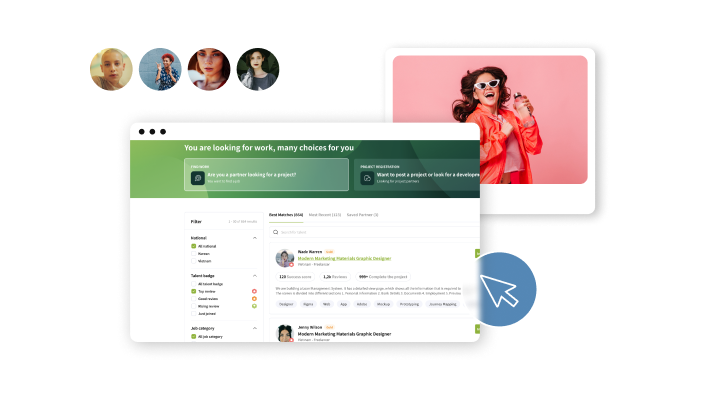As flexible work becomes a growing trend, the terms freelancer and remote full-time are often used interchangeably. While both involve working remotely, these two models differ significantly in terms of job nature, benefits, and levels of commitment.
Freelancers Total freedom, but high volatility
Freelancers are independent workers who typically take on short-term or project-based assignments. Their biggest advantage lies in flexibility, freedom to choose working hours, locations, and even handle multiple projects at once. However, this flexibility comes at a cost. Income is often unpredictable, workloads fluctuate, and there are no long-term contracts or employee benefits. Success depends entirely on one's ability to find clients, maintain quality, and manage time effectively.
Remote Full-time: Stability and benefits with less flexibility
In contrast, remote full-time positions refer to traditional employment carried out remotely. These workers are official employees with contracts, enjoying benefits like insurance, paid leave, and year-end bonuses. Although there's no need to commute to the office, employees must still adhere to fixed working hours and meet performance expectations. This model offers financial stability and structured career growth, but limits the freedom to choose when and how to work.
Freedom or stability? A matter of lifestyle and goals
The difference between freelancing and remote full-time work is not only about logistics it's about career direction and personal lifestyle. Some prefer the autonomy and challenge of freelancing to shape their own path, while others value the consistency and support of being part of a company. Neither option is objectively better; the right choice depends on individual goals and circumstances.
Understanding these distinctions is essential not just for choosing the right job, but also for building a sustainable, proactive career in an ever-evolving world of work.














0 ຄວາມຄິດເຫັນ
ໂພສນີ້ບໍ່ທັນມີຄຳຄິດເຫັນເທື່ອ
ມາເປັນຄົນທີ່ຂຽນຄວາມຄິດເຫັນທຳອິດຂຽນຄຳຄິດເຫັນ